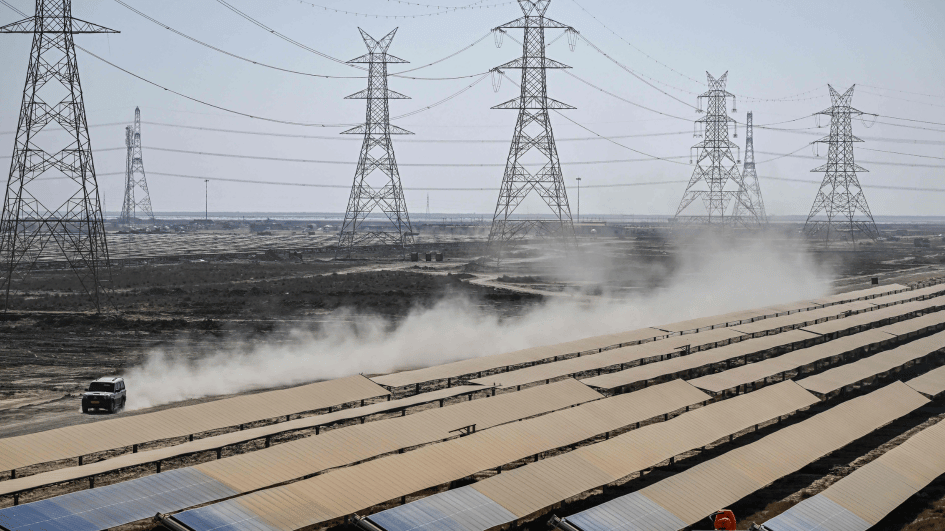Indian tycoon Adani bets big on vast solar and wind plant
NEW DELHI

Deep in the desert along the border with Pakistan, India's most controversial billionaire is building the world's largest renewable energy park as he races to future-proof his coal-linked fortune.
Gautam Adani's ports-to-airports, media and energy empire, which critics say has benefited from his links with Indian Prime Minister Narendra Modi, made him for a brief time in 2022 the world's second-richest man, with a $154 billion fortune.
A year ago, his firms were hit by accusations of a "brazen stock manipulation and accounting fraud scheme" by U.S. short-seller Hindenburg Research and their market value slumped by more than $150 billion.
But they have since recovered much of their losses and the publicity-shy 61-year-old high school dropout is betting hefty sums on making billions more from the energy transition.
India is the world's third-biggest carbon emitter and Modi's government has been at the forefront of attempts to push back against the "phase out" of coal at global summits.
But the world's most populous country and fastest-growing major economy needs ever more power, and Adani is building what he calls a "monumental" solar and wind project he boasts will be "visible even from space."
As the wind whips up sand in the baking heat of the Rann of Kutch desert, thousands of laborers erect vast rows of solar panels, dig foundations for wind turbines and lay seemingly endless rolls of wires.
Sagar Adani, Gautam's nephew and executive director of Adani Green Energy, told AFP that the project's teams are working "at an accelerated pace."
When complete in 2027, the $2.3-billion Khavda Renewable Energy Park will cover 726 square kilometers, nearly the size of New York City.
The park is aimed to have the capacity to generate 30 gigawatts of solar and wind energy, enough to power the homes of 18 million people, more than the combined populations of London and New York.
New Delhi has called for ambitious clean energy projects to create 500 gigawatts of renewable capacity to meet half its energy needs by 2030.
Adani, who rejected Hindenburg's charges as "maliciously mischievous," has said he will invest an estimated $100 billion into that energy transition.
When fully operational, Adani's renewable energy park will make up the equivalent of a quarter of India's current capacity from wind and solar.
Such grand projects often come at a heavy environmental footprint, but local conservationist Mahendra Bhanani said that while he would like a study on its impacts to be conducted, the energy park is far from human settlements and biodiversity hotspots.
"Solar energy is better than many polluting chemical industries," he said.
















